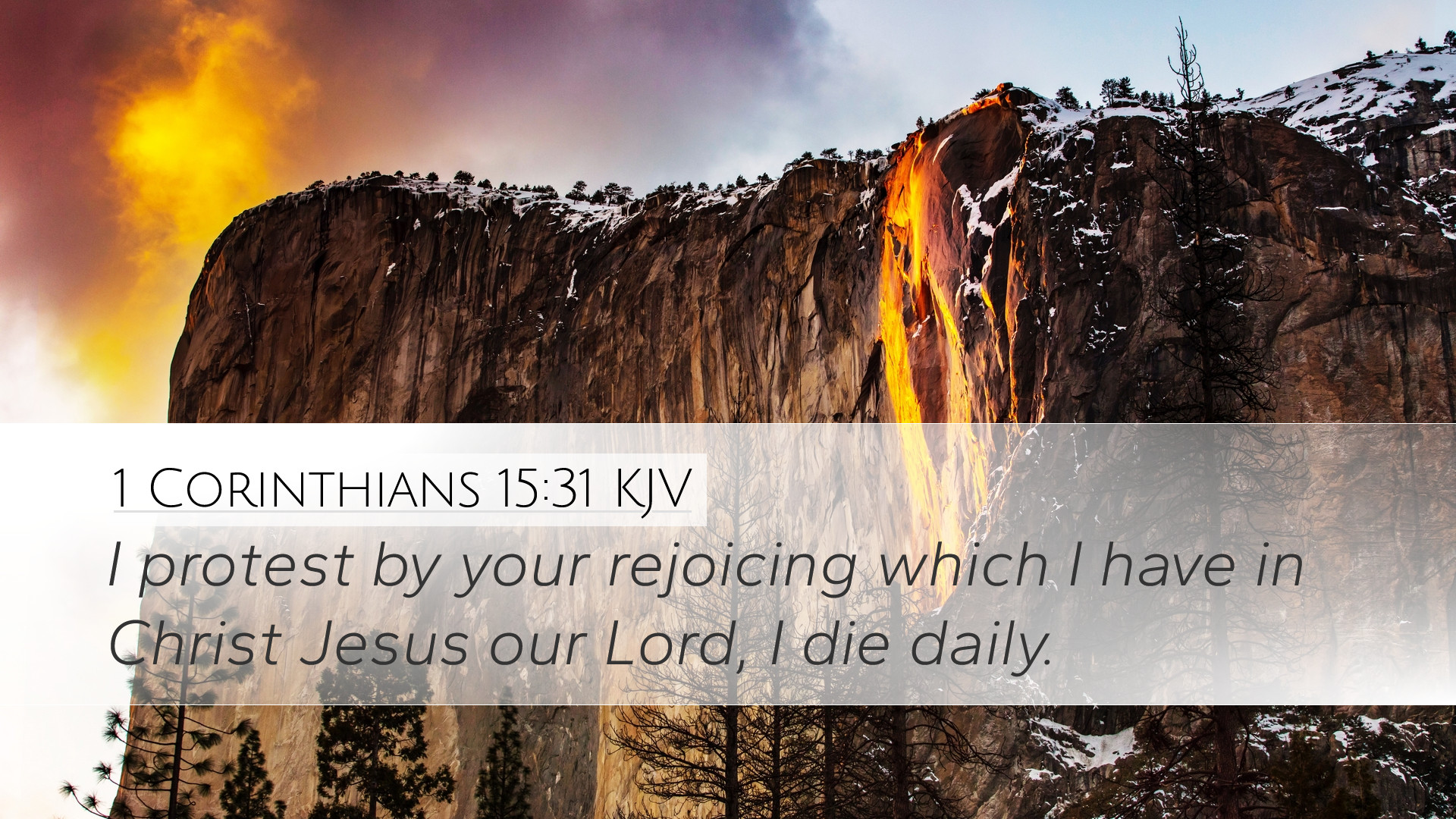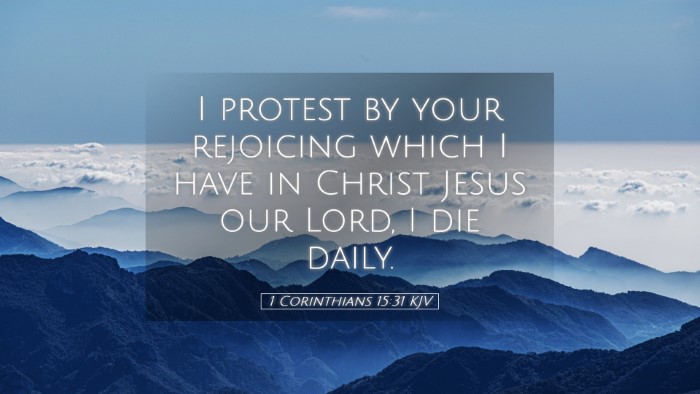Commentary on 1 Corinthians 15:31
Verse: "I protest by your rejoicing, which I have in Christ Jesus our Lord, I die daily."
Introduction
In this verse, the Apostle Paul expresses the deep commitment and sacrificial nature of his ministry. His declaration, "I die daily," is profound and serves multiple theological and practical implications for believers.
Contextual Background
This verse is situated within Paul's discourse on the resurrection of Jesus and its implications for believers. Corinthians is a letter written to address the confusion and immorality present in the Corinthian church, and the doctrine of resurrection is central to the Christian faith. Paul emphasizes that the resurrection is not only a future hope but also a present reality transforming the lives of believers.
Commentary Insights
Matthew Henry's Perspective
Matthew Henry devotes considerable attention to the paradox of daily dying in the Christian life. He asserts that this phrase signifies the continual struggle against sin and the propensity of the flesh. It is a daily warfare where believers are called to take up their cross, following the example of Christ. Henry notes:
- Self-Denial: The act of dying to oneself is paramount for spiritual growth.
- Rejoicing in Suffering: Henry points out that Paul’s joy in Christ acts as a counterbalance to his sufferings, illustrating the deep-rooted faith that transcends circumstances.
Albert Barnes’ Commentary
Albert Barnes emphasizes the necessity of understanding the phrase within its cultural context. He underscores that Paul is alluding to the reality faced by apostles and early Christians who faced persecution and hostility. Barnes indicates that:
- Daily Dying as a Reality: The daily threat to life due to proclaiming the Gospel is a crucial aspect of ministry.
- Joyful Assurance: Barnes explains that the "rejoicing" with which Paul speaks is an acknowledgment of the communal support and assurance provided by the brethren, which fuels a daily commitment to the Lord.
Adam Clarke’s Exposition
Adam Clarke provides a more reflective understanding of the concept of dying daily. He illustrates how believers are called to continual sacrifice in several areas of their lives. Clarke concludes that:
- Spiritual Discipline: The phrase can denote a persistent effort in religious duties and disciplines, indicating an active pursuit of holiness.
- Christ-Centered Living: Clarke stresses that the union with Christ provides the strength necessary to endure daily trials in a manner that glorifies God.
Theological Implications
The theological implications of this verse are significant for understanding the Christian experience. The daily dying signifies not only the physical aspects of persecution but also the spiritual realities of self-denial.
- Union with Christ: The believer’s life is hid with Christ in God (Colossians 3:3), prompting a constant reminder of identity in Christ and the call to live sacrificially.
- Hope of Resurrection: The daily discipline of denying oneself is intricately linked with the hope of resurrection, informing the believer’s outlook toward suffering and glory.
Practical Applications
For pastors, students, theologians, and Bible scholars, this verse encourages a reflective posture towards both personal and communal faith journeys. Here are some pertinent applications:
- Daily Reflection: Commit to a daily reflection of what it means to 'die' to worldly desires while living in the hope of eternal life.
- Encouragement in Ministry: Recognize the relational aspect of rejoicing together as a source of strength in facing persecution or trials.
- Holistic Gospel Living: Promote a lifestyle of self-denial and active engagement in ministry, emulating Paul’s example as a servant of Christ.
Conclusion
1 Corinthians 15:31 serves as a powerful reminder of the dual reality of suffering and triumph in the life of a believer. Through the insights of renowned commentators, we are drawn into a deeper understanding of what it means to live a life characterized by continual surrender to Christ. This verse challenges believers to embrace the call of daily sacrifice while resting in the joy and hope provided through faith in the resurrection.


